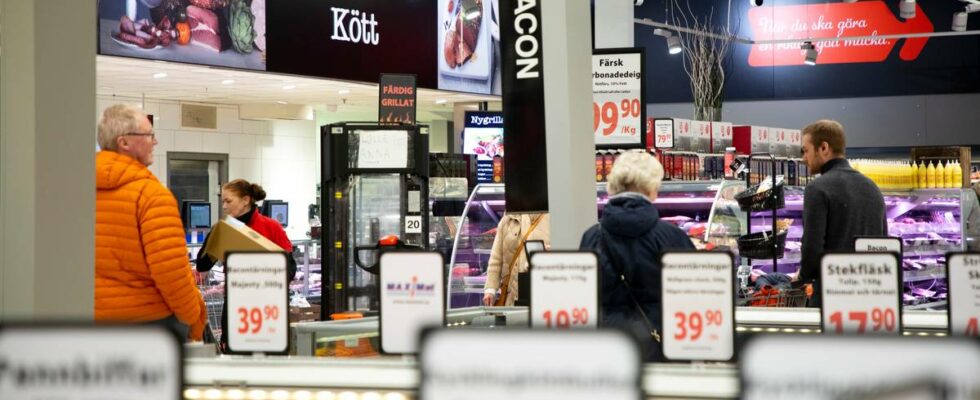Norwegians traded cross-border for NOK 5.1 billion during the first six months of the year. This is shown by new cross-border trade figures from Statistics Norway (SSB). In total, we went on around 2.3 million day trips across the border. This is also an increase compared to last year. – Border trade tends to pick up around holidays and holiday periods, when people have time to go on day trips across the border. A few sunny days in several places at the start of the summer may have contributed to more people choosing to take a day trip across the border, says senior advisor Guro Henriksen at Statistics Norway. Amalie Kristiansen and Malin Grimnes are camping near the border. They shop in Sweden approximately 3-4 times a year. Photo: Jan Kenneth Bråthen / news – It’s cheaper here, it’s also nice to get away and get out, says Malin Grimnes. She has traveled across the border and is shopping with her friend. They are keen to shop as much as possible once they have taken the trip. – Last time I spent NOK 6,000, says Amalie Kristiansen. A quarter of the money left in cross-border trade goes to tobacco and alcohol. Photo: Rahand Bazaz / news Despite the increase in spending, we spend fewer kroner per shopping trip. On average, Norwegians spent NOK 1,921 on each shopping trip across the border in the first six months of the year, compared to NOK 1,968 last year. 42 percent of the money left on cross-border shopping trips was spent on food and groceries. 14 percent went to alcohol, while 11 percent was spent on snuff, cigarettes and tobacco. The Progressive Party wants to bring the tax level in Norway down to the Swedish level. We have also proposed that in our state budgets, says deputy chairman Hans Andreas Limi to news. Deputy leader of the Progress Party, Hans Andreas Limi, wants to bring the tax level in Norway down to the Swedish level. Photo: Rahand Bazaz / news I think everything is going in the wrong direction – The government has increased taxes, and they have contributed to us having a much higher price increase for food in Norway than our neighboring countries. In addition, the Swedes have reduced the price of fuel. Everything is pulling in the wrong direction, and that leads to an increase in cross-border trade, says Limi. – It is especially the typical goods subject to tax that are increasing. What does that tell you? – We have to reduce taxes on typical border trade products. We saw during the pandemic with closed borders how extensive border trade is. And we saw how closed borders led to a tremendous growth in employment in the retail trade, and not least a tremendous growth in turnover. Then we got the documentation on the consequences of what is happening now. Soft drinks and mineral water are also popular goods among Norwegians in cross-border trade, and these made up 7.6 per cent of the goods basket. Chocolate and sweets accounted for 4.7 per cent of cross-border trade, according to Statistics Norway. Photo: Even Bjøringsøy Johnsen / news – It is too early to say that cross-border trade is now in strong growth The Ministry of Finance replies in an e-mail that part of the reason why the figures from Statistics Norway show an increase is due to last year’s price increase. At the same time, they point to the uncertainty surrounding the border trade investigation. – Statistics Norway emphasizes that the cross-border trade survey is a sample survey, which means that there is uncertainty related to the published figures. It is therefore far too early to say that cross-border trade is now experiencing strong growth. – What does it mean that the increase is happening in the product groups, which are particularly subject to tax in Norway? – The reasons for cross-border trade are far more complex than just the relatively high Norwegian excise duties on alcohol and tobacco products. It is also important to remember that the taxes on alcohol and tobacco products should help limit the consumption of health-damaging goods. Reduced taxes can lead to increased consumption, with increased health and social costs as a result. – The government takes the issue of cross-border trade seriously, writes the Ministry of Finance in an e-mail to news. Thorstein Diesen shops in Sweden a few times a year. Photo: Jan Kenneth Bråthen / news Thorstein Diesen is in Sweden approximately 2–3 times a year. He is clear about what he means about shopping on the other side of the border. – Compared to Norway, the prices here are absolutely fabulous. – There will also be some meat products, it is cheaper and more delicious than in Norway. Published 13.08.2024, at 21.07 Updated 13.08.2024, at 22.46
ttn-69
Strong increase in cross-border trade in the first half of the year – news Østfold – Local news, TV and radio

